 For all my snarking about the airport, let me say that I would gladly do it all again. Uzbekistan is full of surprises, paradoxes, complexities, absurdities, and delights.
Tashkent has many shady tree-lined streets and parks. And canals! Who knew? The city is immaculately clean and the wide Soviet era boulevards are seldom busy. In the mid 70s construction of a subway system was begun that now features three different lines and two dozen or so stations that are artfully decorated with Uzbek and Soviet themes. (No pictures allowed, however.) Our hotel is the 17 story Soviet-era Hotel Uzbekistan, once the 1970s posh spot that could now use a face lift. It's probably the largest hotel in town catering to tourists... there are quite a few French and German groups. Details to follow. Once again I am hampered by hamster-powered Internet speeds as well as hobbled by the incredibly full schedule of non stop touring. Add in what Ulan termed "stomach revolution" and the result is that blogging gets short shrift. The bottom line though is that I am finding Uzbekistan even more fascinating and engaging than I even dreamed. The 50 minute flight from Bishkek to Tashkent was absolutely pleasant. New aircraft, announcements in 3 languages including a very understandable English, friendly cabin attendants. The airports, however, are what Jon Stewart would call a clusterfuck.
Bishkek Departures Enter the airport and proceed directly through security, no boarding passes required so friends and family may accompany you. There are then 3 staging areas and a television monitor that identifies which flights are assigned to each of them. With your luggage, you join the crowd around the cordoned off area outside the door to your assigned staging area. Eventually the door opens and for 5-10 minutes various people stick their heads out, look at the anxious mass, and seeingly decide you are not sufficiently agitated. When the moment it finally right, a uniformed agent appears and the roiling mass presses in and, in small groups, ticketing docments are presented so you can go through another security screening. This one includes a full body pat down. Now to the tciket counter to check bags, get boarding pass. Next, passport control. Ok, phew -- now you can go to the boarding area and relax. NO! There is a final security screening: third time for your carry on items, first time for your shoes, and a second pat down. Now you can relax and wait for the boarding call. Our little group repairs to the cafe where we pool our remaing soum to buy drinks and snacks. Tashkent Arrivals After landing, the plane taxis to a distant tarmac to be met by busses. Distant is a kind term for Westbuttfuckistan -- we are far, far away from the terminal. Even though the plane is still moving, passengers start jumping out of their seats and opening overhead bins with the hope of deplaning first. Despite reminders from the attendants, these folks aren't budging. (Knowing what I know now, it's clear these people have no idea what's in store for them because no one is getting out of this place quickly.) After deplaning and filling the transit busses, we enjoy a nighttime tour of the many charming cargo and administrative buildings that line the tarmac. Tashkent gives Heathrow some serious competition when it comes to incomprehensible inter-terminal transportation. Eventually we are dropped off at the arrivals hall for passport control, luggage claim, and customs. Our tour organizer has warned us about customs and we have carefully our forms filled out twice -- I would say in duplicate but you actually have to fill out the same form twice. The NY visa shakedown pays off here and passport control is pretty easy for me unlike the Aussies who "get" to buy a visa at the airport -- it's only $40 -- with a 90 minute wait. Baggage claim is insane. Not only are too many people jammed into a very small place, it's impossible to determine which conveyor belt is for which flight. So I spend 45 minutes at the wrong place watching bags come out and jam the belt -- as more and more bags pile up behind -- until someone spots their luggage, climbs over the belt and starts clearing the jam. Sudenly a bag I recognize appears on the distant belt and off I go to shortly claim my luggage. Almost done? Nope. Very close to the baggage claim are about 6 customs inspection points, each of whcih has a mass (but not a line) of people waiting. None of these masses seem to move or diminish in any way so I picked one that wasn't directly adjacent to the conveyor belt in hopes of minimizing getting pummeled by anxious travelers searching for their bags. After about 20 minutes, I have moved about 6 feet. It takes another 40 minutes to finally get to the inspection where both those idenitcally completed forms are stamped, scribbled, and stapled. Then I am asked to follow the inspector to the special desk to have my money checked. Here, in front of a half dozen immigrants from SE Asia who appear poor, I have to dump all my American dollars on this man's desk. (Background: because ATM and credit cards -- as well as traveler's checks -- are useless in Uzbekistan -- and US$ are the preferred currency for textile goods of which I may purchase many, there is an uncomfortable pile of cash.) The money guy tells me to put it away, then tears up one of my forms and fills out a new one that I must sign describing the amount of cash. I may now go. Welcome to Uzbekistan! Picking back up...
After picnic lunch in the yurt, we proceed along the lake to the village of Tamga and a guest house run by a Russian mountain climber. In addition to cold gritty rooms without locks, it shares many of the characteristics I have so enjoyed in some of Spain's finer Pilgrim hostels -- random hot water, smelly bathrooms, mattresses that you really don't want to think about. It's the only option in the area. Fortunately dinner is in a private home down the road -- and quite good. Sunday We continue along the lake, stopping periodically to walk by the shore, explore a cemetery, view a post Soviet collapse boondoggle where a corrupt developer got World Bank money and began construction of a Kyrgyzstan cultural theme park before absconding with millions. All along the road we continuously pass trucks with cyanide and other supplies for the Canadian gold mine near Karakol, a project that has recently caused uprising among locals who see the damage it's doing to the roads without generating economic benefits for them. Before lunch, we visit the home and workshop of a famous yurt maker for a demonstration of the traditional construction methods. The only nod to modernization is a rusted metal steamer (wood-fired) to soften the wood before bending. Next is lunch served in a traditional style yurt at a community based tourism home belonging to a friendly multigenerational family who lead a very traditional, rural life. Decked out with our cameras, cell phones, special trekking clothes and shoes, I feel like an alien, acutely aware of the disparities between us. Afterwards, we make a long drive to the Chon Kemin Valley where we stay in a former cooperative farm that's been turned into a conference center and hotel blending modern amenities with traditional, rustic style. We've collected our tips to present to Ulan and Alexander at dinner. Alexander ( translated by Ulan) thanks us and we ask for a small speech from this quiet man. He blushes profusely and, after a moment, says that he is very happy to have been our driver, he loves his job and is proud of what he does, he hopes we have liked our time in Kyrgyzstan and hopes that we have a good driver in Uzbekistan. His words are so sincere and humble, so genuine that several of us in the group get a bit teary. Monday Our last morning begins with a hike through the small village in this fertile valley, up to a hilltop for the view, down again crossing a stream several times, back throuhg town town to a large level field to watch a demonstration of buzkashi. Buzkashi is played in teams on horseback and the object is to get possession of the headless goat carcass, carry it as fast as you can (while evading the other team members who are tyring to stop you and steal the carcass back) to your team's goal post and throw it into the designated receptacle. Getting initial possession of the goat carcass that's lying on the ground involves crowding of horses and riders, leaning, stretching, blocking, pulling, shoving. The skill of the horses and riders - and their unity - is extraordinary. After the game, the teams join together in a feast of (tenderized) goat meat. After lunch we load up for the last time and drive quietly to the airport outside Bishkek for our flight to Tashkent. I'll save the details of Central Asian air transit for my next post from toasty Tashkent. Thursday
Lake Issyk Kul lies in a valley in the Tien Shan range bordering China. Some of the snow capped peaks exceed 16,000 feet. The beauty is breathtaking; the lack of development is incongruous from an American perspective but the summers are brief and winters are long and cold -- and there's little in the way of infrastructure. The wreckage from the collapse of the Soviet Union is evident everywhere with abandoned buildings, half completed factories, and tired monuments to the revolution. Ulan says the Kyrgyz people still respect Russia althought it is very clear that their departure caused major economic hardship for the citizens, especially the older ones who worked for the State and expected pensions. Our destination for the day is Karakol at the eastern end of the lake. Along the way we stop at an archeological site with petroglyphs dating to the Scythians and then at the museum and gravesite of Prejevalsky, the Russian explorer and geographer who was funded by the czar to reach Tibet before the English. While he ultimately failed, his expeditions into Kyrgyzstan's mountain passes secured his acclaim among both the Russians and the Kyrgyz. Karakol is hard to describe. The fourth largest "city" in the country (popn 70,000), it has a strong czarist Russian heritage combined with crumbling Soviet decay and an Asian Wild West sort of feeling. There's a beautiful wooden Russian Orthodox Church built entirely without nails that is a few blocks away from a Dungan mosque for the ethnic Chinese muslims. There are B&Bs and Internet cafes for the summertime trekkers and winter skiers. There are horses, sheep, goats and cattle tied up grazing say, next to the post office. Homes are a combination of falling apart and half built modern structures. Our guest house is lovely and for both nights we dine at the home of a Uiyghur family who use part of their home as a dining room/B&B. The food is good and the portions are enormous -- a dilemma since we don't want to insult our hosts. The first night a performance of traditional Kyrgyz folk music has been arranged including a special recitation of part of the epic legend of Manas, the ultimate mythical horseman leader of the Kyrgyz tribes. I was sort of dreading an endless spectacle calling for polite attention while fighting off a noodle-induced food coma -- in fact, it was spectacular! Friday A Soviet troop transported picked us up at 8:30 am for a 30 km drive into one of the mountain passes for a visit to some hot springs and hiking. Fortunately it was not an open truck with benches that is used in films. Due to the nature of the "road," the trip up took about 2 hours during which we passengers were jostled and bounced fairly violently over boulders, through streams and mud. The secret is to relax and allow the bouncing. Resistance is not only futile, it is exhausting. The scenery is staggering, the baths are primitive and sulphurous (but nonetheless pleasant), and the journey back allows for an hour of exhilarating walking down the road. I keep thinking, "we are about 100 km from the Chinese border" -- it blows my mind. Saturday Loading back up in our nice Mercedes mini bus is most welcome after yesterday's journey. We will travel west along the southern shore of Lake Issyk Kul to Tamga after another excursion in nature. First stop is to see eagle hunting wherein a trained eagle will be released to hunt and catch a domestic rabbit for its master. While seeing a "bunny" become dinner didn't top my list of things to do, I was quite captivated by the relationship between eagle and her master, the training and beauty of the bird. The master comes from a long line of eagle hunters and is teaching both his son and daughter. He captured the eagle when she was one, after her mother had trained her. Now four, he expects to keep her for another 5 or so years before releasing her into the wild. We continued on to another valley with fascinating rock formations, along a river to a high meadow approaching the mountains that just cried out for Julie Andrews in a dirndl. A picnic lunch was planned but the weather was cold and spitting rain. Ulan, as we hiked, made arrangements to lay out our picnic in the yurt of a local family preparing to shortly depart their encampment (where they'd been grazing horses) for the winter in town. Perhaps Tashkent (tonight) will offer better Internet access -- loading text and pictures is painfully slow... Tuesday:
After breakfast at the hotel, we load up in the minibus at 9:00 am for a full day. Our guide, Ulan, is reputed to be the best and most famous guide in Kyrgyzstan. Even without those credentials I'd be thrilled -- he's flexible, inquisitive, informative without being a gasbag, and fun. He's fluent in Kyrgyz, Russian, and English. Alexandyr is our very nice Russian driver, skillfully managing to get his beautiful Mercedes transport vehicle through the tightest spots with ease. He only speaks Russian (correction: he does say "bon appetit" very nicely) and his voice sounds a bit like he is being strangled. Our first day agenda includes 2 textile workshops, one high end textile shop, and a walking tour of the monuments in downtown Bishkek. Traffic is crazy and the first studio is on the outskirts where we can see the suburban sprawl of private homes that came after the Soviet collapse. This is more what you would expect to see in Mexico or other developing nations -- there are horses and donkeys and occasional commercial establishments. First studio is Aidai Asangulova's who innovated the art of fusing traditional felting with silk. After a couple of hours seeing the process and shopping through seconds, we have stop for lunch. Next we visit the home and studio of a master weaver whose father was a revered shephard who helped maintain the role of sheep in Kyrgyz agriculture after the Soviet collapse. Onto Tumar in downtown Bishkek -- nice and expensive -- before we drive to the main square where the main government buildings, monuments, and parks are. Every hour there is ritualized changing of the guard with goose-stepping soldiers advancing with precision, balancing rifles and swinging their arms looking a bit like a Monty Python parody. Later we head to dinner at a Turkish restaurant. Food's good but the bright sport is a group of well dressed older Kyrgyz women (our age) having their monthly dinner out, sharing vodka and singing traditional folk songs. We clap and cheer, toasting them. Kind of like book club! Wednesday We head out at 8:30 am to start our trip to Lake Issyk Kul. First stops are in Tokmok: home of a military training center -- an old Russian MIG is displayed on the way into town. They are amazingly small, not at all what I imagined. Next we go to an archeological site featuring the first minaret in Kyrgyzstan along with a small museum of artifacts and an open air display of stone funerary monuments from the 6th century called "balbals." More driving to visit one of the most esteemed felt artists in Kyrgyzstan, Mairam. After lunch at her home we are able to see how wool is processed to become felt as well as the dyeing, design, cutting and stitching of the traditional designs. Then a long drive through the mountain pass to begin our circumnavigation around Lake Issyk Kul. We pass through some very depressed towns that have neverrecovered from the Soviet collapse on our way to Cholpon-Ata where there are numerous lakeside resorts catering to Russians and Kazakhs. We spend the night in one where the very short tourist season is coming to a close. It kind of has the feel of a family camp combined with a cheesy disco incongruously placed in a spectacular setting surrounded by the snowcapped Tien Shan mountains. Dinner and breakfast are the culinary low points. I'm trying to upload photos but having trouble with the slow connection. There's no wifi tomorrow so I'll try the day after to sum up the remaining days in Kyrgyzstan and attach some images. I couldn't ask for a nicer group of traveling companions! The 9 Aussies who make up the tour group are a wonderful bunch -- smart, funny, generous, playful and interesting. As one bloke (aee how I'm getting into it, mate?) said, a tour like this serves as a great filter and pretty much guarantees a simpatico grouping. Though truth be told, there was a Frenchwoman named Sophie on a recent tour who has become legendary for not going with the flow. That said, this particular week's agenda -- unlike the upcoming Uzbekistan itinerary -- is non stop activity during waking hours. Today went from 9:00 am to 10:00 pm. It's just the nature of the country that there aren't a lot of options to go off on your own for unstructured time The transportation and arrival couldn't have been easier... aside from the sleep and jet lag part.
The flight from Istanbul took us across the Black Sea, into Russian airspace, across the Caspian, into Kazakh airspace and, finally, into Bishkek. Manas airport is substantial and inspires confidence though it appears their main customer is the US military using it as a base for Afghanistan operations. Nevertheless, it beats quonset huts and barbed wire at 2:40 AM. My driver showed up promptly though I would have been quite glad to wait since the immediate alternative was sharing a ride with the slightly drunk German businessman who'd been persistently suggesting that I'd be better off at the Hyatt... where he's staying. The main road into Bishkek from what I could see squinting into the dark was basically empty, immaculate and lined with trees. It seemed like a long time with a lot of backtracking (until I later saw a map) but at last we turned down a dark bumpy road, then another, then onto a smaller pitch black lane lined with trees and dark bushes where there were no visible structures. OK, if I have to fight off an assailant in order to get to bed, then let's get it over with because I am really freaking tired. Actually too tired to even give a moment's paranoia any credence. As it turned out the only fight was hauling my sleepy ass up 2 flights of stairs to reach my room in this very pleasant guest house. (Google "Asia Mountain Guest House" if you are interested.) Despite good intentions -- and multiple alarms -- of getting up in time for breakfast, I slept blissfully until 1:30 PM and took a long time to sort out my belongings and get ready to travel in country. I finally ventured out for a couple of hours before the rest of the group arrived to see what I could see. Picking up a Russian sightseeing map from the reception, I was able to figure out where I was in relationship to the icons denoting parks, monuments, mosques, pharmacies and shopping. Sidewalks and other walking surfaces require careful attention as they are uneven and constantly changing in composition. Smiling is not a social practice on the street; passersby clearly notice me but look away quickly if I make eye contact... even the children who are leaving school and walking home jostling around and playing amongst themselves. It is not so immaculate on the side streets, the garbage collection receptacles overflow and the plastic bottles and bags have migrated. Development is everywhere, cranes looming above tall buildings in various states of construction amidst the rundown concrete apartment buildings that conform to every stereotype of Soviet architecture I've ever had. I pass many small shops with very limited offerings and most of them are filled with customers. Onto one of the main thoroughfares the traffic picks up with lots of honking and modest attention to signals -- I make a point to attach myself to groups when crossing the road. The Lonely Planet guide says the TsUM, the big Russian department store has a great selection of well priced textiles so I venture in to what seems like a collection of sizable cubicles within the large building, each representing different categories of consumer goods. On the third floor, the cubicles of ethnic goods (very touristy and souvenerish) are juxtaposed with major appliances -- you might need a new vacuum to clean that shyrdak (traditional wool felt rug.). On the way back I pass the grand opening of a new jewelry store. It seems that radio DJs are blasting the event with loud music, interviewing spectators (and there are plenty) and using the same inflated, oily-jokey cadence of radio hosts everywhere. From the looks of the spectators, my guess is the jewelry store is not going to get many customers from this crowd but from the advertising everywhere on this main drag and the presence of luxury items for those who can afford them, it's clear that consumerism is firmly planted and sprouting vigorously. Hearing the sound of Russian isn't so unfamiliar to me given the sizable populations in N. California and the Pacific Northwest but the Cyrillic alphabet throws me way off and my eyes are drawn to anything Roman: pole dancing school, tennismax, designer names, Toyota, VW... imported things. At dinner the guide, Ulan, tells us that many Pakistanis and Indians come to Bishkek to study medicine because the tuition is so much less. Someone asks if it is taught in Kyryz or Russian: it is taught in Russian. There are not enough words in Kyrgyz -- sometimes not ANY words -- for all that goes on in a body, he says. With all the foreign investment and influx of international visitors and residents, it seems to me that Kyrgyz culture is transforming very quickly -- jumping from the yurt to the apartment block in record time. Where can I get a cell phone holder for my camel saddle? Having formed and dispensed such deep insights after barely more than 24 hours here with minimal knowledge and scant observation, it's time to get ready for today's excursion around Bishkek and to get better acquainted with my Aussie fellow travelers. Tomorrow we begin our trip around Lake Issyk-kul. With 3 hours of sleep, I awoke without an alarm and was outside waiting for my 4:45 am car to the airport. Within minutes I see the unmistakable blue flashlight app from an iPhone wandering in front of the houses nearby. Should I go back inside? Then it approaches me and I hear a voice saying (with a thick Russian accent), "I am so sorry my car has broken down. Oh dear!" I immediately think that my nightmare arrival in Bishkek (in the dark, no ride, no one to call, language barriers...) has been bumped up on the itinerary. But, no, this is Boris, the driver I hired and the poor guy has sprinted 3 blocks in the dark to reach me while madly phoning colleagues to find me a ride. His day has not gotten off to a good start and he periodically emits mewing sounds like a scared kitten. 15 minutes later, another car arrives and after an intense exchange in Russian, we leave Boris in the dark and zoom to the airport where I board right on time hoping Boris gets his car fixed as easily.
Right now I'm in the air less than two hours from Istanbul. Breakfast is served just as, on my neighbor's TV screen, Tom Cruise looks on with concern as a damsel on the space ship pukes violently. (Bon appetit!) The sweet young Turkish flight attendant kindly asks, "Is there anything else you want, lady?" No, there's really nothing else I want. |
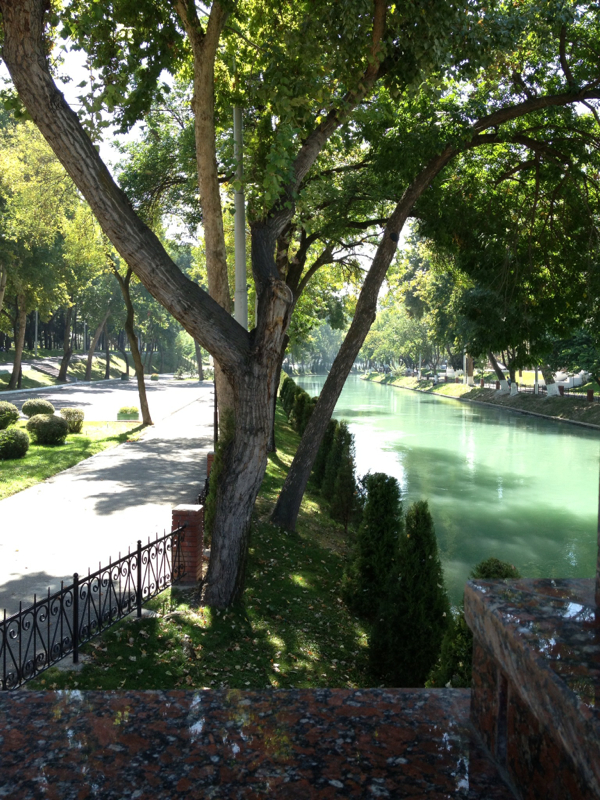
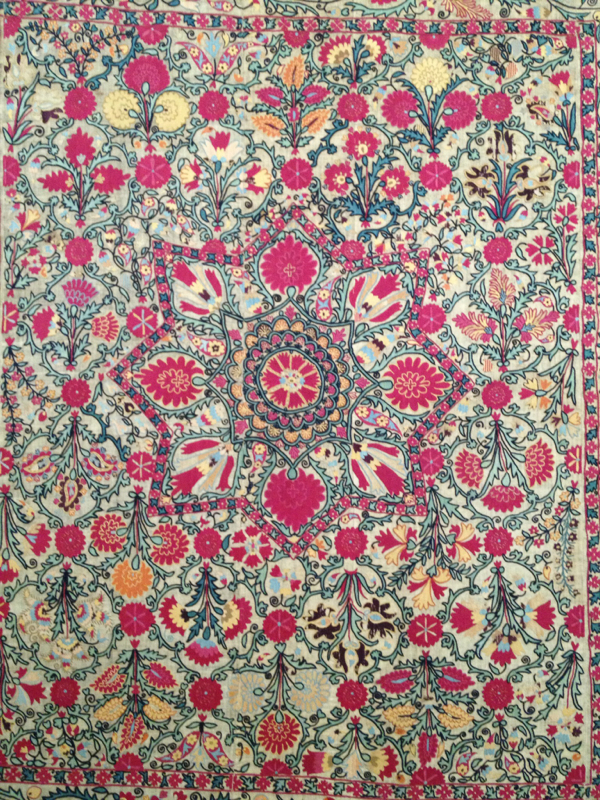
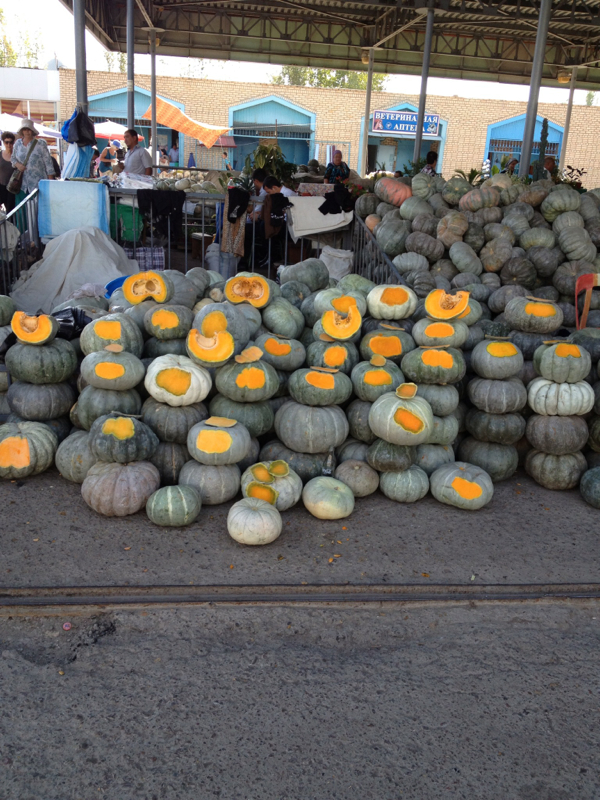
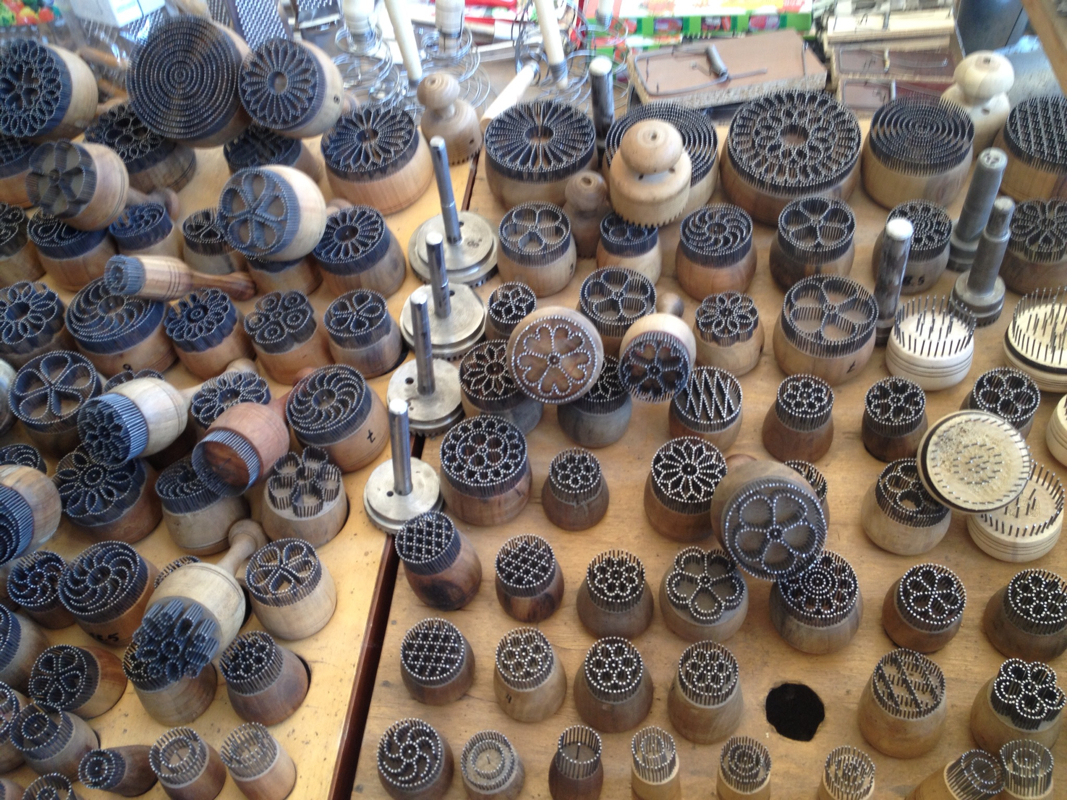
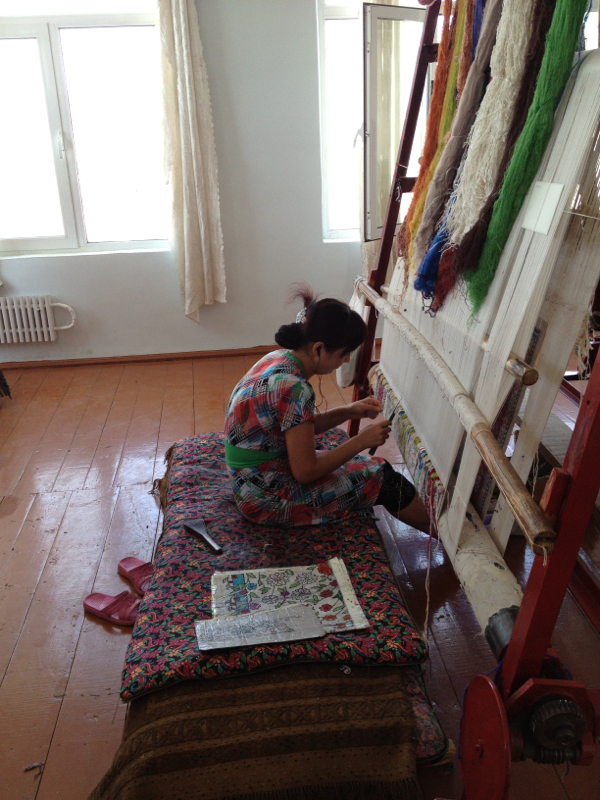
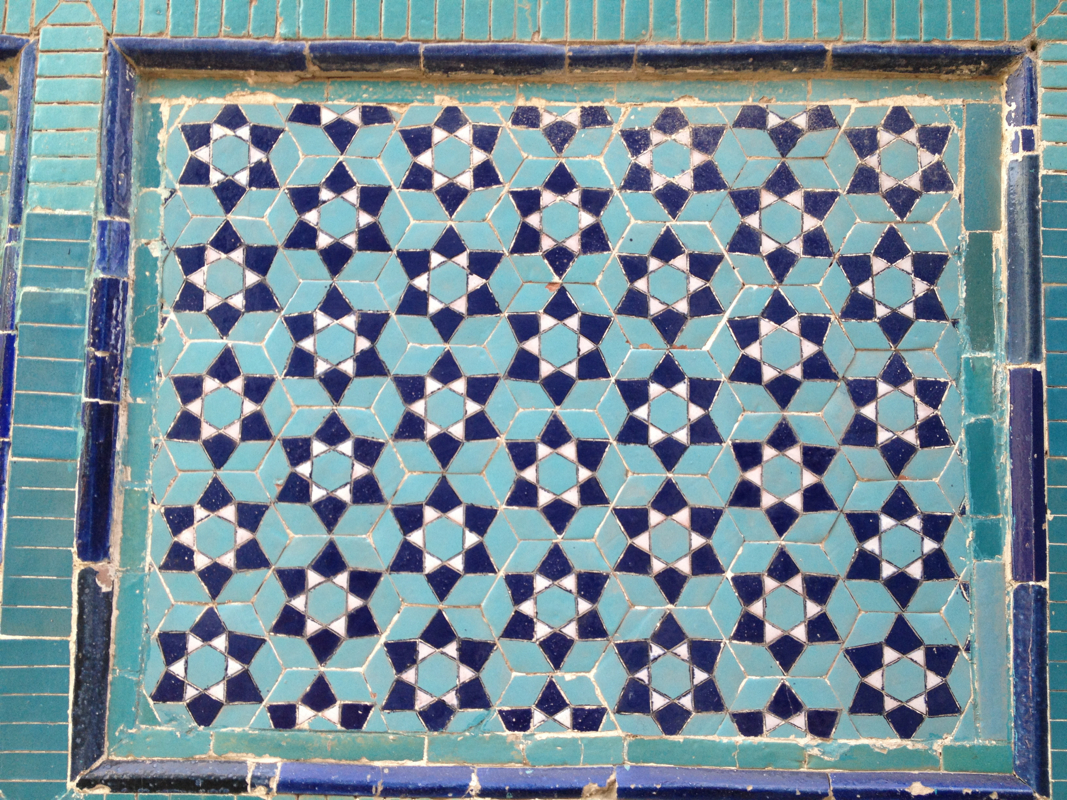
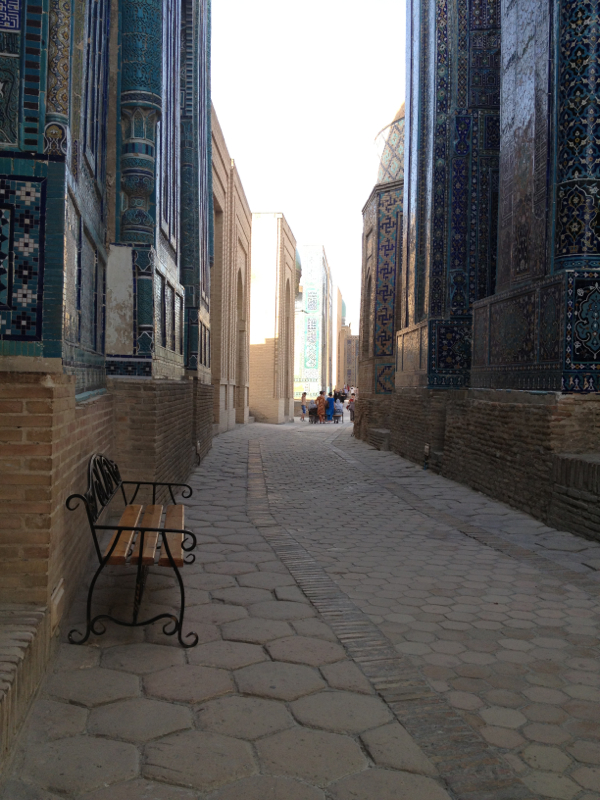
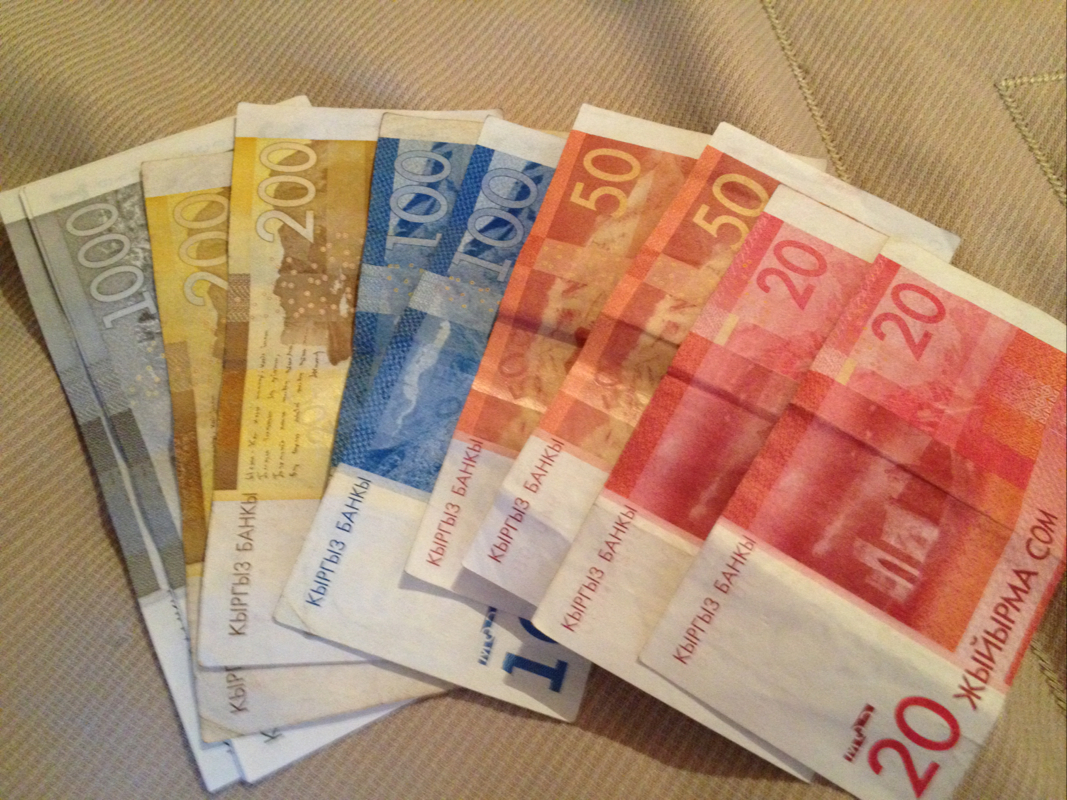
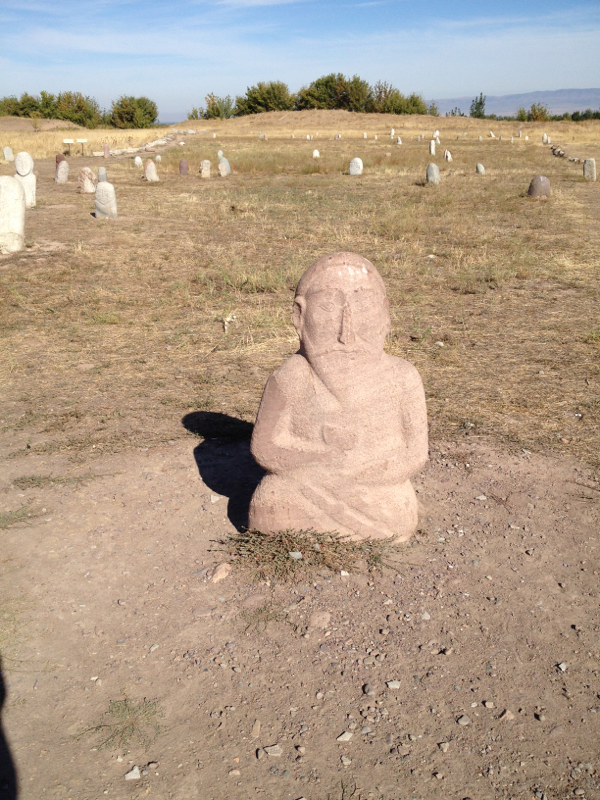
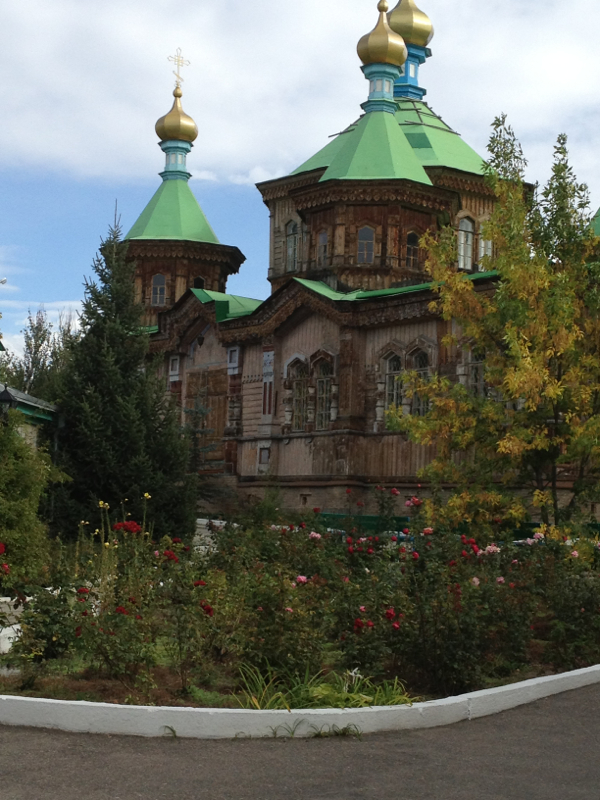
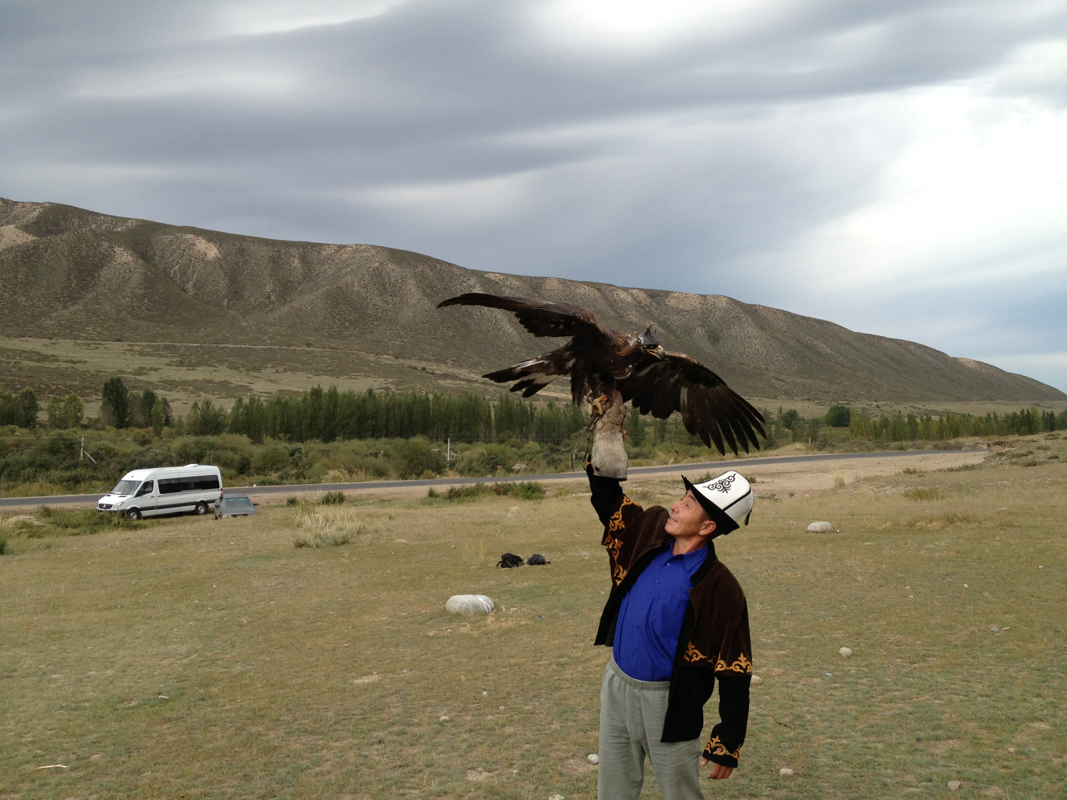
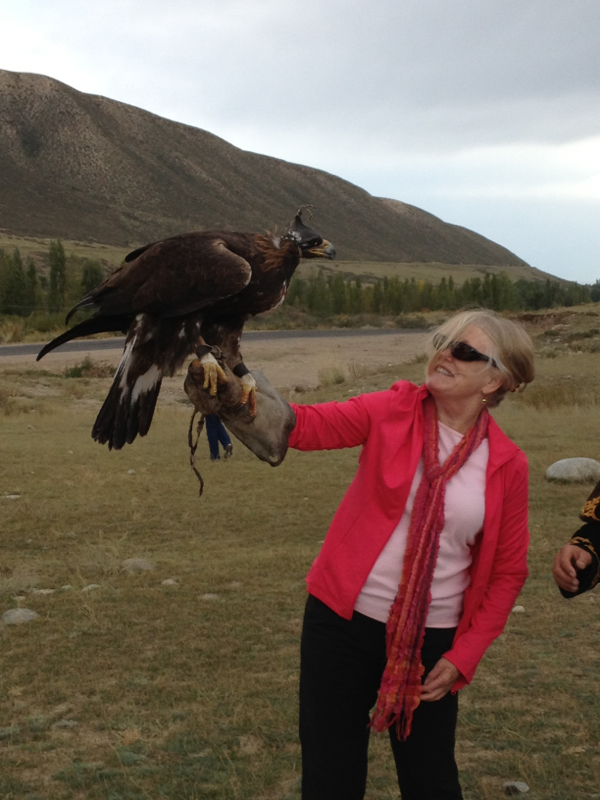
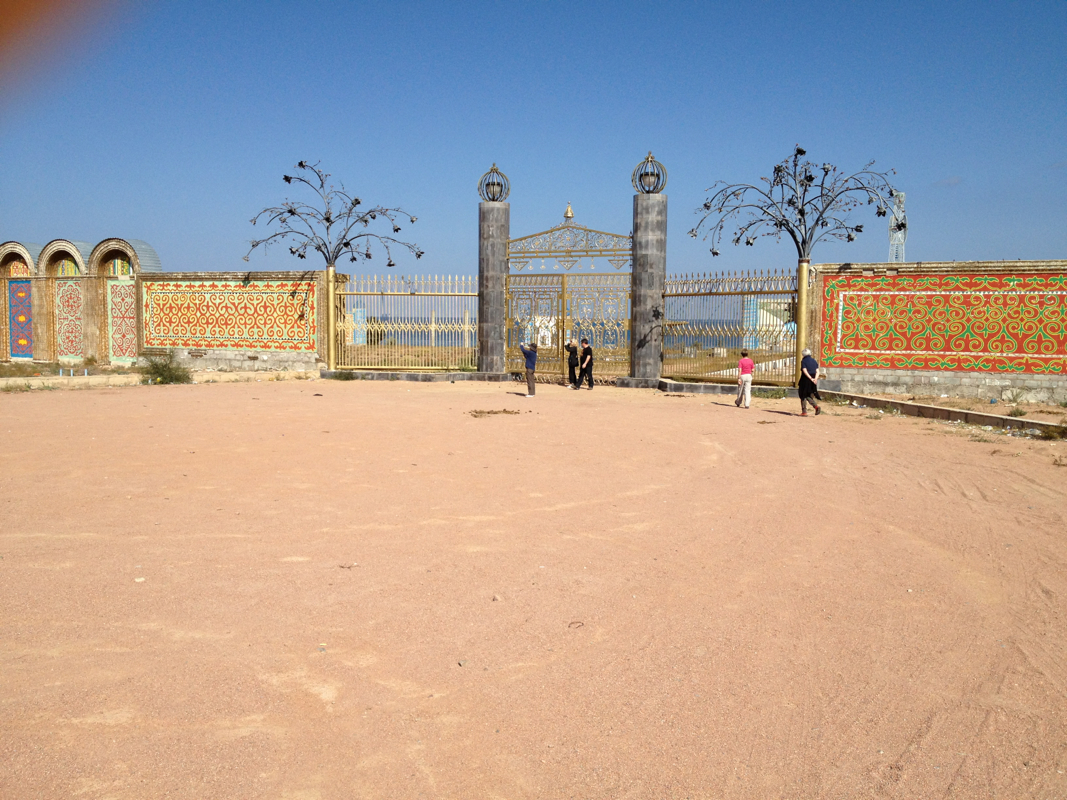
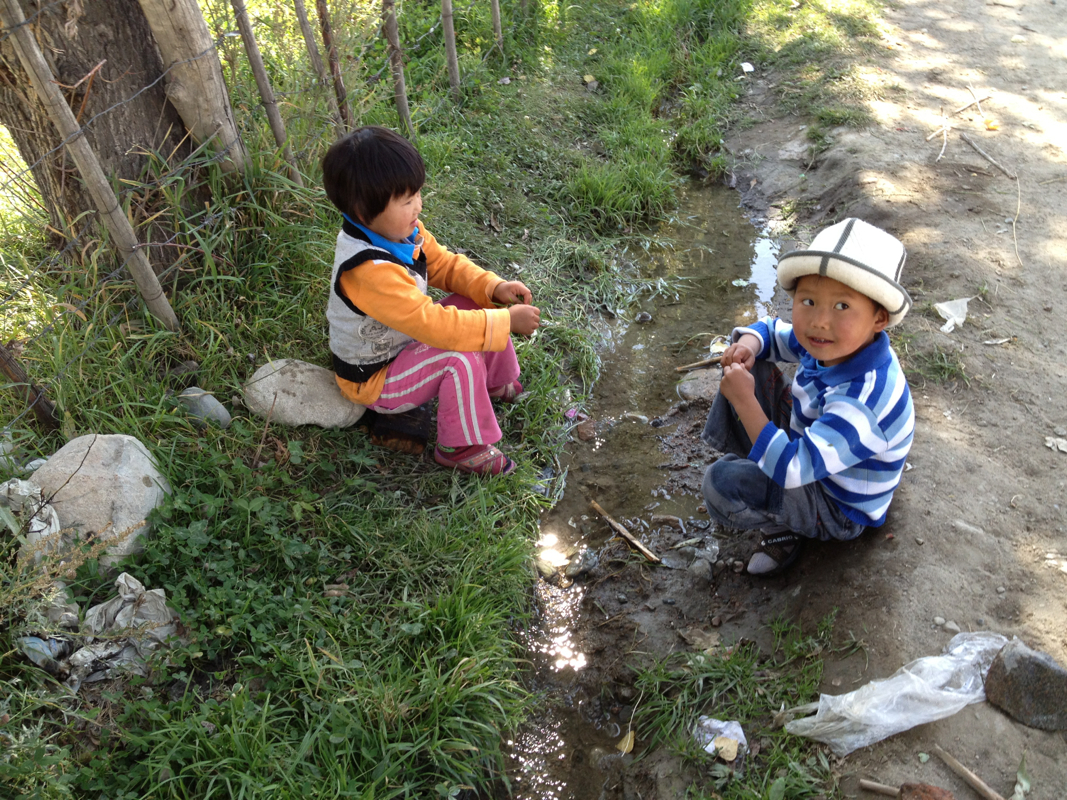
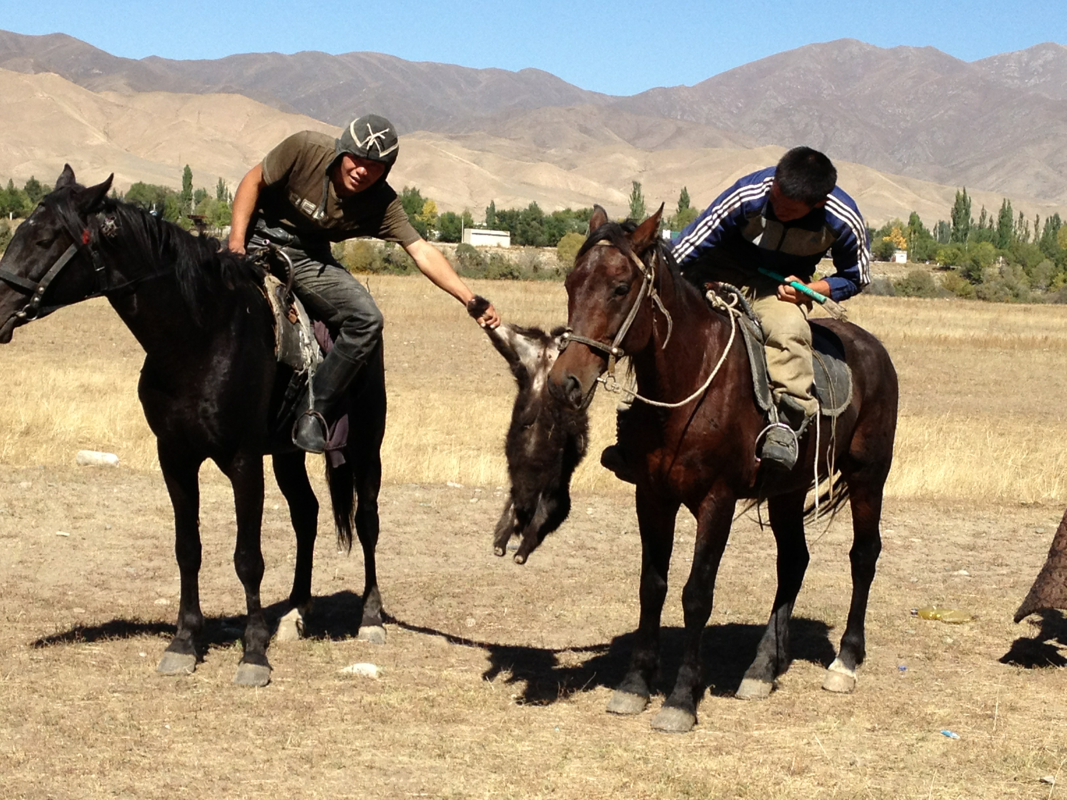
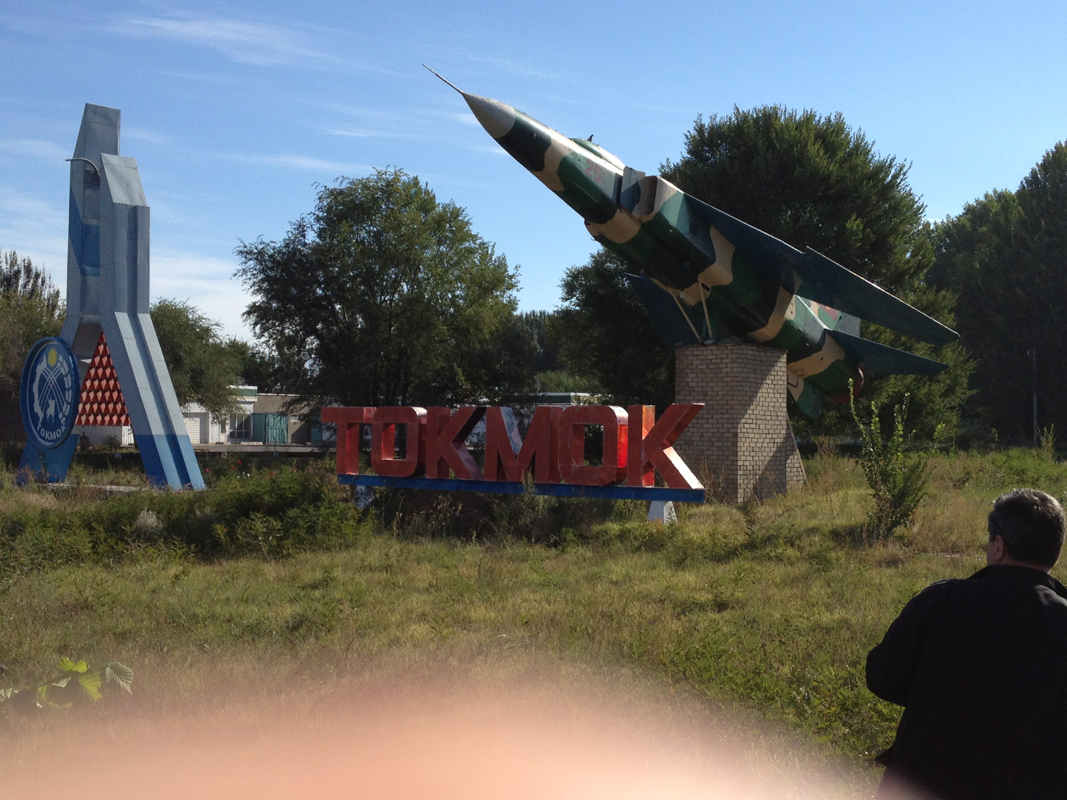
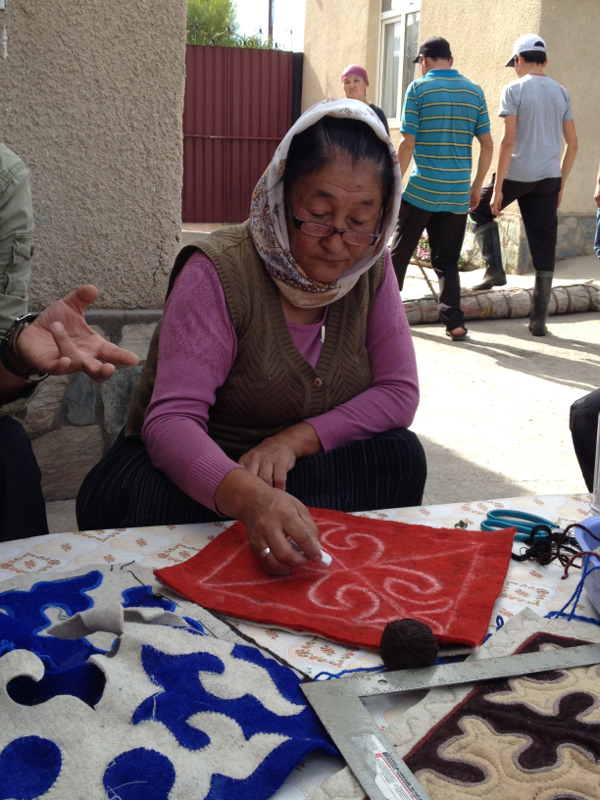
 RSS Feed
RSS Feed